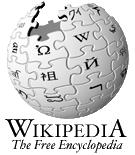
 Study: Junior physician's use of Web 2.0 for information seeking and medical education:
Study: Junior physician's use of Web 2.0 for information seeking and medical education:Google and Wikipedia used by 80% and 70% of physicians, respectively http://is.gd/1oQky
Wikipedia is a prominent source of online health information compared to the other online health info providers studied. Wikipedia ranked among first ten results in 71–85% of search engines and medical keywords tested. In search tests, "Wikipedia surpassed MedlinePlus and NHS Direct Online and ranked higher with quality articles" http://bit.ly/39Xq8k
I didn't understand why @Berci spent so much time editing medical articles in Wikipedia. Now I know and it has obviously made an impact.
Also, I have dismissed Wikipedia as a medical resource until so many residents reported using it during the NEJM Horizons conference in October 2008.
Observation: Just look around you in computer section of medical library of any university & see how many students check Wikipedia. Whether we like or not (and I haven't for a long time), medical students use Wikipedia (a lot) http://bit.ly/39Xq8k
Do you think any medical encyclopedia (@medpedia, AskDrWiki) has any sustainable future facing Wikipedia headstart?
Twitter opinions:
@chrisseper: "One way to lose confidence in a doc. Ask a medical question and see the doc go online & find the answer via Wikipedia."
@palmdoc: "Would anyone lose confidence in a Doc who looks up Google? I'd be worried if they don't know how to Google."
Related:
Web 2.0 for Emergency Physicians http://bit.ly/uFnA0 - A must read. Applies to all physicians. Recommended.
The Trouble with Wikipedia as a Source for Medical Information. Laika’s MedLibLog.
Wikipedia: A Key Tool for Global Public Health Promotion (review article)
Is Wikipedia a reliable learning resource for medical students? No, according to Advances in Physiology Education http://buff.ly/1A48e9Q
Image source: Doctors Using Google by Philipp Lenssen, used with permission.
Is Wikipedia a reliable learning resource for medical students? No, according to Advances in Physiology Education http://buff.ly/1A48e9Q
Image source: Doctors Using Google by Philipp Lenssen, used with permission.